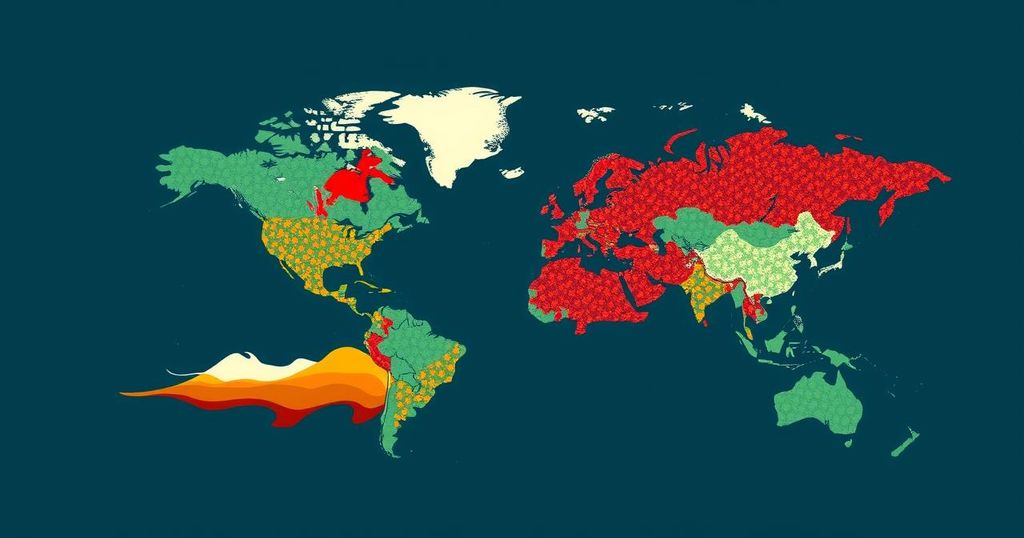The COP29 United Nations climate talks in Baku are grappling with the complications arising from ongoing wars, which distract from climate discussions and divert funds that could otherwise support climate resilience in developing nations. Activists stress the urgency of addressing climate change, while leaders call for increased cooperation and financial commitments to combat the dual crises of conflict and environmental degradation.
At the recent COP29 United Nations climate talks in Baku, a confluence of ongoing wars has complicated discussions surrounding climate change funding and cooperation. Notably, activist Nisreen Elsaim shared her personal experiences of displacement due to civil conflict in Sudan, highlighting the urgent need for support for developing nations in adapting to climate change. Global leaders articulated that ongoing military conflicts, such as those in Gaza and Ukraine, divert financial resources and attention away from essential climate initiatives, exacerbating global crises. The core objective of COP29 is to allocate financial contributions from wealthier countries to aid developing nations, particularly those adversely affected by climate change and armed conflicts. However, leaders emphasized that wars impede progress in overcoming the climate crisis, with dissenting voices from activists demanding equity in climate financing. The interconnectedness between military expenditure and climate challenges was a recurring theme, with experts urging a redirection of funds toward sustainability efforts, suggesting that improving international collaboration could mitigate both conflicts and the adverse effects of climate change. The comments from various global leaders and activists underscored the urgency of integrating humanitarian needs with climate action, acknowledging that the ramifications of contemporary conflicts also hinder essential resources needed for poverty alleviation and environmental progress. As discussions progressed, attendees remained hopeful that despite the geopolitical tensions, significant strides toward ambitious climate agreements could still be reached.
The COP29 climate talks occur against the backdrop of escalating geopolitical tensions and ongoing wars, particularly in regions like Gaza and Ukraine. Such conflicts significantly impact the climate agenda, detracting from international cooperation and redirecting financial resources away from climate justice efforts. The summit seeks to address financial commitments from wealthy nations to developing countries facing dire situations exacerbated by war and climate change. Activists and leaders alike emphasize the need for unity and a resolute focus on climate adaptation as an integral part of international humanitarian efforts.
In conclusion, the ongoing conflicts globally have complicated the deliberations at the COP29 climate talks, pushing climate change adaptation and financing into the spotlight. Activist voices underscore the necessity of urgent action and funding for vulnerable nations. As leaders discuss potential solutions, the hope persists that transformative agreements can emerge despite the challenging geopolitical landscape, ultimately fostering cooperation in addressing the intersecting crises of war and climate change.
Original Source: apnews.com






